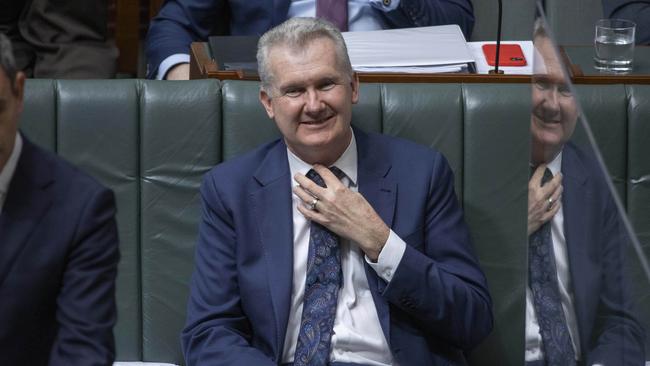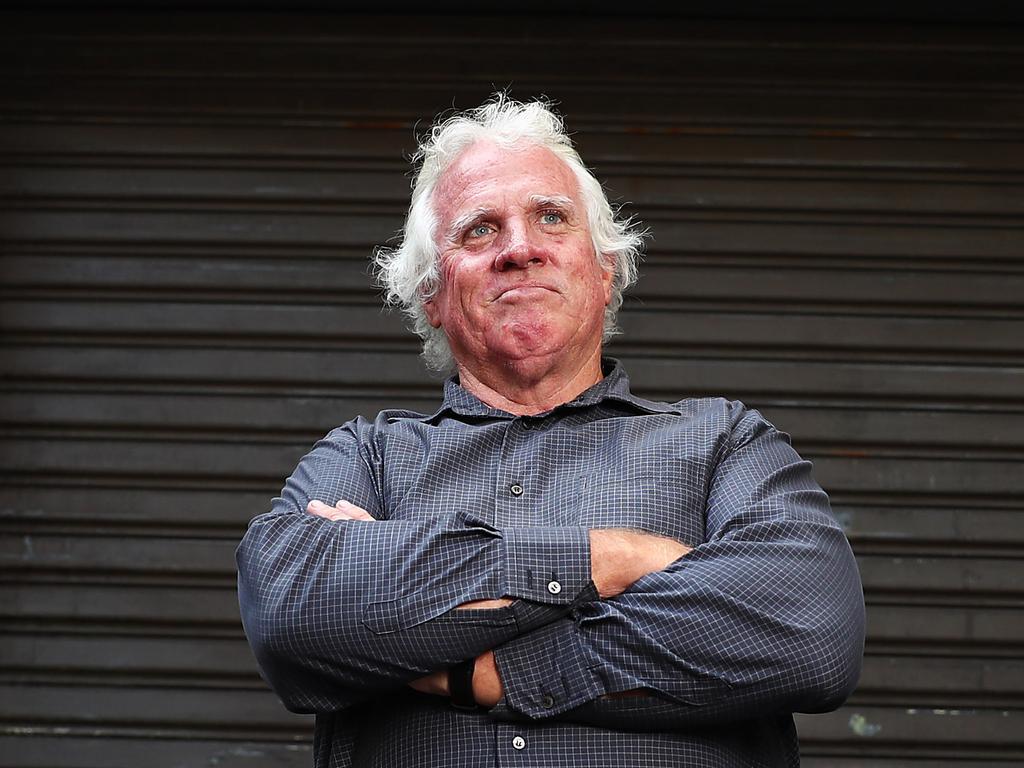Labor’s IR bill could shut down marginal flight routes and services, Qantas warns
The national carrier warns existing marginal flights and services could become unviable, leading to a ‘cascade’ of job losses under proposed changes.

Qantas says some existing marginal flight routes and services could be shut down under the Albanese government’s proposed industrial relations reforms, which it claimed would destroy demand for flying because of increased costs.
The national carrier’s warning came amid a private sector revolt against the IR shake-up, with Clubs Australia flagging that small clubs across the country could be forced to close if exposed to multi-employer bargaining.
Companies and industry groups representing the business, aviation, mining, retail, hotel, housing, building, food and health sectors have this week rejected proposed government changes to multi-employer bargaining.
Qantas told the Senate committee into the Secure Jobs, Better Pay bill, which has delayed the release of its final report until next Tuesday, that the proposed legislation would plunge the aviation sector back 40 years and lead to a “cascade” of job losses and less flying.
“The bill places at risk a vigorously competitive, efficient and innovative Australian aviation industry,” the Qantas submission said.
“For the Qantas Group, it will almost certainly mean less flying because costs will rise and demand will be destroyed – particularly on marginal routes.
“This will result in less investment and fewer jobs in aviation, with a flow-on effect for communities and tourism.
“This is not catastrophising because we have seen a version of this before under Australia’s centralised wage-fixing model in the 1970s.”
The airline argued that multi-employer bargaining would effectively become industry-wide agreements that would undermine the viability of many enterprises and reverse economic reforms delivered by the Hawke government in the mid-1980s.
Qantas said the IR changes would give too much power to trade unions and the Fair Work Commission and would “result in fewer jobs, less investment and an economy that is more insular and less innovative and competitive”.
The Senate committee, which had been given three weeks to deliberate on the legislation after the government said it wanted a vote on the bill before Christmas, has postponed its report until parliament returns next week to hear from the FWC.
With only two parliamentary weeks remaining, the government is “actively exploring” whether extra days are required to push through a bottleneck of legislation, including the IR bill.
Independent ACT senator David Pocock – whose vote the government needs alongside the Greens to support passage of the legislation through the Senate – has come under pressure from unions to win him over.
Senator Pocock, who will make a final decision after reading the committee report, will host a town hall meeting in Canberra on Wednesday night where Workplace Relations Minister Tony Burke will deliver a 10-minute speech.
Mr Burke on Tuesday argued that multi-employer bargaining was not intended to “create a ceiling” on wages and rejected claims that employees of small businesses working in the same geographical area could unite to demand higher pay.
Ahead of speaking at the National Press Club on Wednesday, Mr Burke deflected criticism from some major employers and industry groups that preferred “to not pay more for wages”.
“And you’ll always get unions and others saying they want wages to get moving.
“It’s been ever thus. That’s not going to change,” Mr Burke told 2GB radio.
In its submission to the Senate inquiry, the ACTU claimed restrictions on the right to strike were “excessive” and could make protected industrial action tougher to access under the bill.
The ACTU said while the scope of accessing protected industrial action was broadened, procedural requirements would be “more burdensome” in some cases.
“Overall the level of restriction on the right to strike – indeed the right to take all forms of industrial action such as work to rule or bans on overtime or specific tasks – will remain excessive in the event the bill is passed,” the ACTU said.
Senator Pocock’s town hall meeting, which will be attended by union officials and industry group representatives, comes after Australian unions invoked the early 20th-century Bread and Roses strike in the US and sent dozens of roses to his office.
The United Workers Union set up a dinner table in front of his office where they served a meal of “higher wages”, while the Independent Education Union publicly urged the Wallabies legend to support Labor’s bill.
Clubs Australia executive director Joanne Ede on Tuesday told the Senate committee that multi-employer bargaining provisions could decimate the clubs sector.
The peak body, representing 6000 clubs and more than 140,000 workers, said small clubs employing only a couple of dozen employees could be forced to close if exposed to “unintended consequences” triggered by multi-employer bargaining.





To join the conversation, please log in. Don't have an account? Register
Join the conversation, you are commenting as Logout